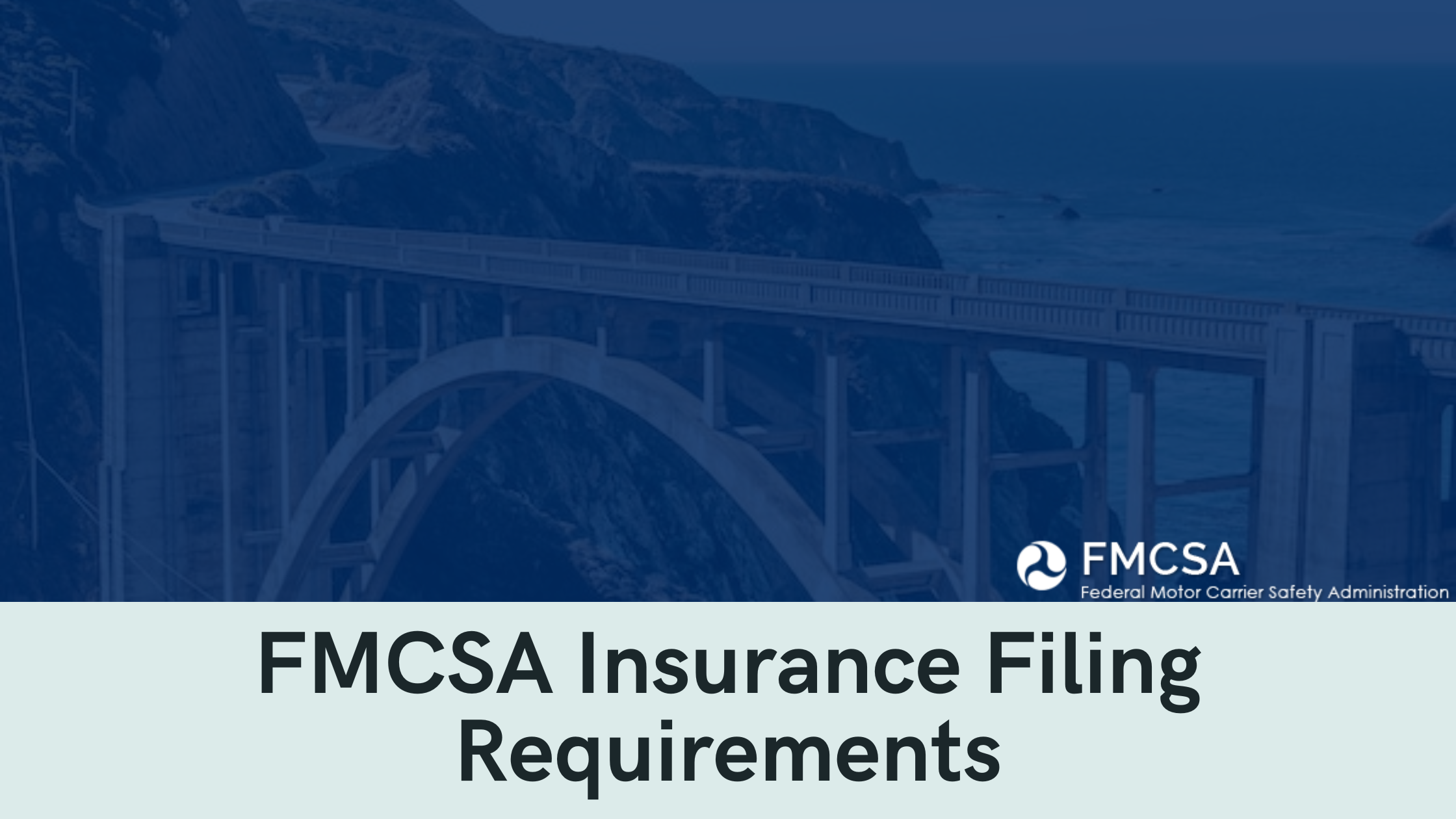The FMCSA states that before it can grant operating authority to a motor carrier, the carrier must file certain insurance and legal process agent documents with the agency.
Although the required filings vary based on the types of registrations involved, the stipulations and minimum coverage amounts are clearly outlined on the FMCSA’s website which can be found here.
First time applicants must apply using the Unified Registration System (URS).
Furthermore, liability and cargo insurance forms must be submitted directly online by the home office of the insurance company furnishing the coverage.
Both Interstate and Intrastate carriers are required to obtain insurance according.
Forms and Insurance Types
BMC-91 or BMC-91X (Bodily Injury and Property Damage)
BMC-91 or BMC-91X are FMCSA forms needed to be filled by motor carriers and freight forwarders. The insurance is related to property damage, bodily injury, and environmental restoration, as per the FMCSA’s website.
A link to the BMC-91 form can be found here.
BMC-34 or BMC-83 (Cargo)
BMC-34 or BMC-83 forms are required for Household Goods Motor Carriers and Household Goods Freight Forwarders. This insurance is described as cargo insurance– $5,000 per vehicle & $10,000 per occurrence.
BMC-84 or BMC-85 (Broker Surety Bonds and Broker Trust Fund Agreements)
BMC-84 or BMC-85 forms are described as follows. BMC-84 is a surety bond in the amount of $75,000. The bond serves as a guarantee of payment between the broker and motor carriers.
However, BMC-85 requires freight brokers to provide $75,000 of collateral to be held in trust for the duration of their license.
So, the benefit of BMC-84 over BMC-85 is the freight broker surety bond, meaning that the broker doesn’t have to pay the $75,000 upfront.
BOC-3 (Designation of Agents for Service of Process)
Process agents file the BOC-3 form on behalf of the carrier with the FMCSA. It enables the authorized person to accept legal documents on your behalf in the state where you conduct your business.
All authorities are required to have this filing.
MCS-90 (Endorsement For Motor Carrier Policies of Insurance)
MCS-90 is a hazmat safety permit for carriers. It’s an endorsement for motor carriers’ insurance policies that must be attached to the auto liability policy to ensure that federal coverage is in place
Motor Carrier Insurance Forms:
- Licensing and Insurance (L&I) System
- Form BMC-85 – Property Broker’s Trust Fund Agreement Under 49 U.S.C. 13906 or Notice of Cancellation of the Agreement
- Form BOC-3 – Designation of Agents for Service of Process
- Form MCS-82 – Motor Carrier Public Liability Surety Bond under Sections 29 and 30 of the Motor Carrier Act of 1980
- Form MCS-82B – Motor Carrier Public Liability Surety Bond under Section 18 of the Bus Regulatory Reform Act of 1982
- Form MCS-90 Endorsement for Motor Carrier Policies of Insurance for Public Liability under Sections 29 and 30 of the Motor Carrier Act of 1980
- Form MCS-90B Endorsement for Motor Carrier Policies of Insurance for Public Liability under Section 18 of the Bus Regulatory Reform Act of 1982
Here is a simple startup guide for new motor carriers
Insurance Requirements Summary
Transportation companies need to have insurance to protect their vehicles, drivers, and cargo. The specific forms needed will depend on the type of trucking they do, the type of cargo they carry, and the regulations in the area where the trucks will be used. Some common forms of insurance that trucking companies may need include:
- Commercial auto insurance: This covers the trucks, trailers, and other vehicles used by the trucking company. It can protect against damage to vehicles, as well as injuries to drivers and other people involved in accidents.
- Cargo insurance: This covers the cargo that the trucking company transports. It can protect against damage to the cargo, as well as losses due to theft or other causes.
- Liability insurance: This covers the company if it is found to be responsible for an accident or other incident. It can provide financial protection for damages, legal fees, and other costs associated with a liability claim.
- Physical damage insurance: This covers damage to the company’s vehicles and cargo from sources other than accidents, such as fires, storms, and vandalism.
- Non-trucking liability insurance: This covers the company’s vehicles when they are not being used for business purposes, such as when the driver is using the truck for personal use.
In addition to these forms of insurance, companies may also need to carry other types of coverage depending on their specific business needs and the regulations in their area. It’s important for trucking companies to work with an insurance provider who understands the unique risks and challenges faced by the trucking industry.


